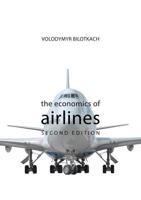Publisher's Synopsis
In Speed, Safety, and Comfort: The Origins of Delta Air Lines, former Delta Boeing 767 captain and aviation historian James John Hoogerwerf traces the evolution and growth of one of America's most successful airlines. Delta's story began during the early twentieth century with the fight against the cotton-devouring boll weevil, which devastated the southern economy and compelled scientists to formulate calcium arsenate powder to eradicate the invasive pest. To aid in the elimination effort, Huff Daland Company, a military aircraft manufacturer, constructed the first plane specifically designed to dispense the poison from the air. Crop dusting proved so effective, Huff Daland Dusters, the world's first crop-dusting company, rebranded as Delta Air Service in 1928 to focus more on providing commercial services, including the transport of passengers and air mail. The following year Delta began flying its first passengers from Monroe, Louisiana, eventually establishing routes across the southeastern United States. By the eve of World War II, the firm had assumed the familiar Delta Air Lines name and boasted forward-thinking management, a modern fleet of aircraft, and increased revenue from passenger ticket sales.
Now headquartered in Atlanta, Delta counts itself among the oldest and largest airlines in the world, with nearly 90,000 employees and more than 5,400 flights per day. Delta's expansion and survival are anomalies in an industry historically dominated by government and special interests. Hoogerwerf's masterful history of Delta's beginnings underscores the company's contribution to agriculture, southern industrialization, and the development of commercial aviation in the United States.











